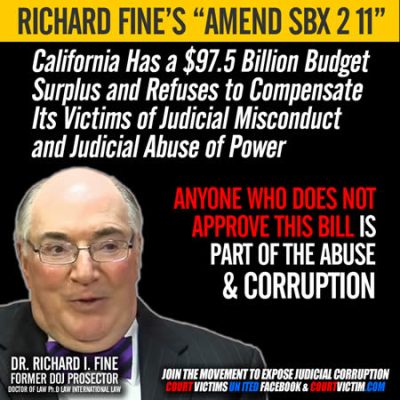Cook County Chicago Illinois County Judge Shauna L Boliker exposed for possible bribery

COOK COUNTY RECORDER HIDES JUDGE SHAUNA L. BOLIKER’S LOANS Following the disclosure of Judge Shauna L. Boliker’s considerable loan history, with concerns voiced that these loans are in fact a vehicle for bribery, the Cook County Recorder has now made this information unavailable. You can read the initial article containing the data on these loans here Today’s search, again using her husband’s name, came up with NOTHING! NONE of the hits relate to the appropriate party! Back Search : Name: Andrews David M Total Documents : 6 Click the boxes to select your documents before adding to the cart. You may remove documents from your cart by clicking the “Shopping Cart”, which is located in the upper right corner of the page. Buy Documents Buy Search Result (No Images) View DocDoc Number Doc RecordedDoc ExecutedDoc TypeConsi. Amt.1st Grantor1st GranteeAssoc. Doc#1st PIN View22213213518/1/20227/28/2022RELEASEMORTGAGE ELECTRONIC REGISTRATION SYSTEMS INCANDREWS MARK DAVID200155710317-17-235-019-1138 933 W VAN BUREN ST, CHICAGO View 22209420227/28/20227/11/2022WARRANTY DEED$375,000.00ANDREWS MARK DAVIDTRUONG NORMA E17-17-235-019-1138 933 W VAN BUREN ST, CHICAGOView20036060302/5/20201/31/2020RELEASEMORTGAGE ELECTRONIC REGISTRATION SYSTEMS INCANDREWS MARK DAVID190744902617-17-235-019-1138 933 W VAN BUREN ST, CHICAGO View 20015571031/15/20201/7/2020MORTGAGE$306,000.00ANDREWS MARK DAVIDMORTGAGE ELECTRONIC REGISTRATION SYSTEMS INC222132135117-17-235-019-1138 933 W VAN BUREN ST, CHICAGO View 19074490263/15/20192/22/2019MORTGAGE$303,600.00ANDREWS MARK DAVIDMORTGAGE ELECTRONIC REGISTRATION SYSTEMS INC200360603017-17-235-019-1138 933 W VAN BUREN ST, CHICAGO View 19074490253/15/20192/13/2019WARRANTY DEED$330,000.00DELM ALISENANDREWS MARK DAVID17-17-235-019-1138 933 W VAN BUREN ST, CHICAGO Page 1 of 1 Page Size: 100 We have an epidemic of crime in America being committed by the ABA (a gang) with members who swear an oath to their own not justice or the people they serve. Read More




